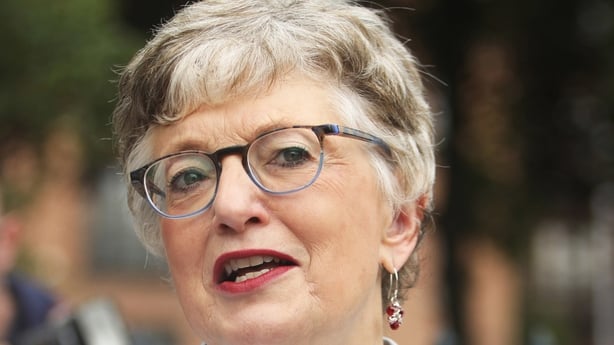Publication of a 2018 report by the Mother and Baby Home Collaborative Forum (survivors and advocates) has been approved by Cabinet.
The First Report of the Collaborative Forum of Former Residents of Mother and Baby Homes criticised the 2016 Adoption Information and Tracing Bill and former Minister for Children Katherine Zappone's intention to progress the legislation that she inherited from her predecessor James Reilly.
It stated that "the unstated and hidden objective" of that Bill was to extend and prevent access, not just to the identity and personal records of those legally or illegally adopted post 1952, but also to the records of the unaccompanied children, boarded out and fostered children "who are defined euphemistically as being ―subject to an informal care arrangement".
The report also described forum members' engagement with the Child and Family agency as "demoralising and frustrating" and it described the suggestion that TUSLA would take control of records of older survivors as "astonishing, regressive and a measure of unbelievable crassness and insensitivity".
The group was established by Ms Zappone to outline issues of concern for survivors who were in Mother and Baby institutions, county institutions and the Bethany Institution.
Four years ago, it was tasked with writing a report outlining these concerns ahead of the final report of the Commission of Investigation into Mother and Baby Homes and Certain Related Matters.
In December 2018, the report was given to Ms Zappone, but it was never published in full.
The explanation given by the department and the Attorney General via the minister at the time, was that the report could impact the work of the Commission of Investigation into Mother and Baby Homes and Certain Related Matters.
In April 2019, Ms Zappone published the collaborative forum's recommendations and said her intention was to publish the full report after the commission of investigation completed its work.
In the meantime, the commission of investigation received a copy of the full report.
The current Minister for Children, Roderic O'Gorman, has published the report, however, Susan Lohan, co-founder of the Adoption Rights Alliance and member of the collaborative forum, has described it as "too little, too late".
The Department of Children, Equality, Disability, Integration and Youth said it had engaged with organisations criticised in the report to ensure they had an opportunity to review relevant material and provide any observations which they deemed appropriate.

While it acknowledged the process had taken some time, it said the minister was pleased that publication of the forum's report in full had been facilitated.
Ms Lohan said while the report would have little effect on the wider public, survivor groups would be able to see the wider context in which the group made its recommendations - published in in isolation in April 2019.
"It should also come as a timely reminder that these recommendations have largely not been active," she said.
Today, Government also approved the appointment of a new special advocate for survivors, which originated in the Action Plan for Survivors and Former Residents of Mother and Baby and County Home Institutions.
It has agreed that the role of the special advocate will be "to ensure survivors' views are central to the delivery of the State’s response to the legacy of institutional trauma in Mother and Baby or County Home institutions, Magdalen Laundries, Industrial Schools and Reformatories and related institutions".
It said it represented "a new holistic and inclusive approach ensuring all survivors can be heard" and presents "an opportunity to respond to the needs and concerns of these survivors in an equitable manner".
Responding to the publication of the Collaborative Forum report, Tusla said it was "in no doubt" that many people felt they had been let down by the state, including Tusla, when it came to seeking information on their identity and early life.
In a statement, its CEO Bernard Gloster said the 2018 report was at the core of why two changes that had been pursued in the intervening years, were so necessary.
The first, he said was that the new legislation (Birth Information & Tracing) has finally enabled Tusla to give people what they need about their identity and early life care.
He acknowledged that the child and family agency has been "challenged by the numbers", however, he said Tusla would resolve that.
Mr Gloster also said there had been a "second important change" regarding the culture of public services within Tusla.
"It is no longer acceptable for us to have values unless we clearly demonstrate those in how people experience us. We work in very complex personal matters and with multiple pieces of legislation. We must pursue the highest standards of professionalism in that work.", he said.
However, he added that the agency could never stop challenging itself to do better in the culture of the organisation and how the values of Trust, Respect, Kindness, and Empowerment are experienced by the people it serves.
"We have previously apologised to people who in their search for information had a bad experience of us.
"Regardless of any legal framework issues we would never wish for anyone to be hurt and in as much as they attribute that to us, we do again offer that same apology with the assurance we are and will continue to improve."
While he said change and progress since 2018 was "clearly evident", Tusla would always have more to do, and he said the Collaborative Forum report was "another imperative" for that.







